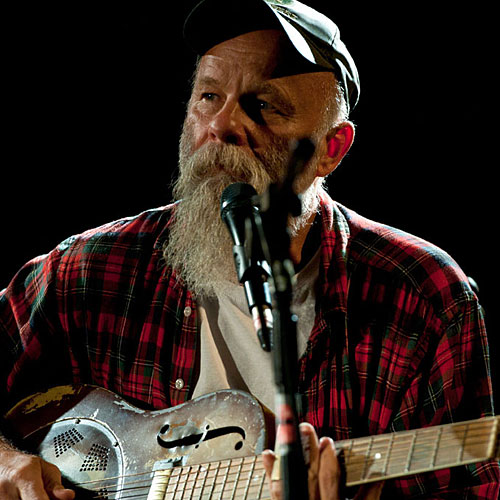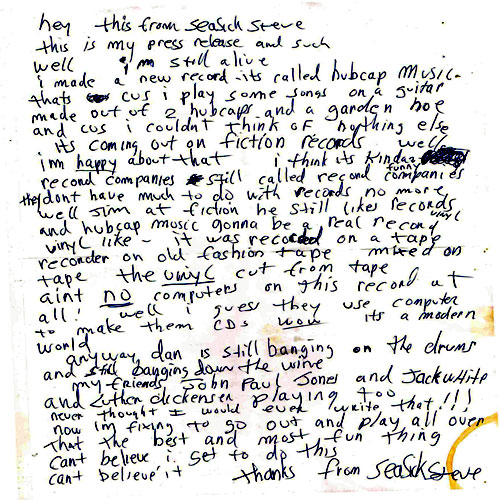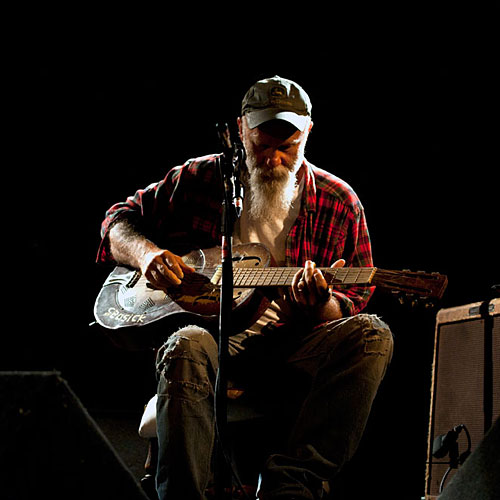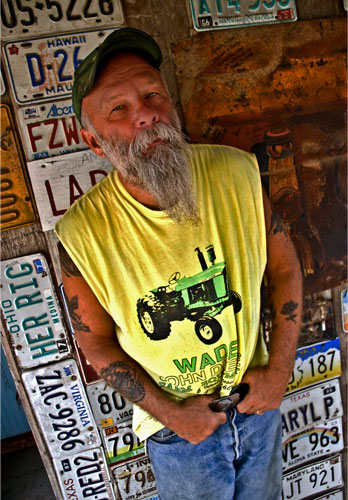Seasick Steve’s Memo
Steven Gene Wold, commonly known as Seasick Steve, (born 1941) is a fine and successful American blues musician. He plays mostly personalized guitars, and sings, usually about his early life doing casual work.
Childhood and early lifeWold was born in Oakland, California. When he was four years old, his parents split up. His father played boogie-woogie piano and at five or six years old, Wold tried to learn but could not. At age eight, he learned to play the guitar (he later found out that it was blues) from K. C. Douglas, who worked at his grandfather’s garage. Douglas wrote the song “Mercury Blues” and used to play with Tommy Johnson.[citation needed] Wold left home at 13 to avoid abuse at the hands of his stepfather, and lived rough and on the road in Tennessee, Mississippi and elsewhere, until 1973. He would travel long distances by hopping freight trains, looking for work as a farm labourer or in other seasonal jobs, often living as a hobo. At various times, Wold worked as a carnie, cowboy and a migrant worker.
Of this time he once said:
“Hobos are people who move around looking for work, tramps are people who move around but don’t look for work, and bums are people who don’t move and don’t work. I’ve been all three.”
In the 1960s, he started touring and performing with fellow blues musicians, and had friends in the music scene including Janis Joplin and Joni Mitchell. Since then, he has worked, on and off, as a session musician and studio engineer. In the late 1980s, while living in Olympia, near Seattle, he worked with many indie label artists. Kurt Cobain was a friend. In the Dutch newspaper De Telegraaf of May 31, 2011 Steve denied this, saying (in translation): “Just like everybody else I saw him pass by in the street and said hello to him. That doesn’t make us friends, does it?”. Regarding his ‘friendship’ with Janis Joplin (same source): “We both lived in San Fransisco in the sixties. Period”. In the 1990s he continued to work as a recording engineer and producer, producing several releases by Modest Mouse including their 1996 debut album This Is a Long Drive for Someone with Nothing to Think About.
At one time, living in Paris, Wold made his living busking, mostly on the metro. After moving to Norway in 2001, Wold released his first album, entitled Cheap, recorded with The Level Devils (Jo Husmo on stand-up bass and Kai Christoffersen on drums) as his rhythm section. His debut solo album, Dog House Music was released by Bronzerat Records on November 26, 2006, after he was championed by an old friend, Joe Cushley, DJ on the Ballin’ The Jack blues show on London radio station Resonance FM.
Seasick Steve performing in 2009 at the Hard Rock Calling festival in London’s Hyde Park. Wold made his first UK television appearance on Jools Holland’s ‘Annual Hootenanny’ BBC TV show (broadcast on New Year’s Eve 2006) where he performed a live rendition of “Dog House Boogie” on the ‘Three String Trance Wonder’ and the ‘Mississippi Drum Machine’. After that show his popularity exploded in Britain, as he explained in an interview:
“I can’t believe it, all of the sudden I’m like the cat’s meow!” He was well received in the UK, winning the 2007 MOJO Award for Best Breakthrough Act and going on to appear at major UK festivals such as Reading, Leeds and Glastonbury. In 2007 he played more UK festivals than any other artist.
Wold’s major-label debut, I Started Out with Nothin and I Still Got Most of It Left was recorded with Dan Magnusson on drums, was released by Warner Music on September 29, 2008, and features Ruby Turner and Nick Cave’s Grinderman. He has toured the UK extensively since 2007. In October 2008 and January 2009 were all sold out and included performances at the Royal Albert Hall, The Edinburgh Queens Hall, the Grand Opera House in Belfast, the Apollo in Manchester, the City Hall in Newcastle and the London Hammersmith Apollo.
In 2009, Wold was nominated for a Brit Award in the category of International Solo Male Artist and BBC Four broadcast a documentary of Wold visiting the southern USA entitled Seasick Steve: Bringing It All Back Home. On January 21, Wold hosted “Folk America: Hollerers, Stompers and Old Time Ramblers” at the Barbican in London, a show that was also televised and shown with the documentary on BBC Four as part of a series tracing American roots music.
Guitars:
The Three-String Trance Wonder. This is a normal guitar that resembles a Fender Coronado or a Teisco EP-7. It has an old Harmony pickup added (with duct tape) and is tuned to G, A and B using an E string in the A position, a D in the G position and a G in the B position. At his gigs, he often tells the story that he bought it for $75 in this condition in Como, Mississippi from a man named Sherman, who later told him he only paid $25 for it the day before. Wold vowed never to add another string, and that he would tour the world telling his story of how Sherman ripped him off. All in good fun as Sherman Cooper is a good buddy, who gave him the guitar having had it nailed to the wall as a decoration. A lot of the time he also adds (while picking up or putting away the guitar) that it is the “…biggest piece of shit in the world, I swear.” On a BBC interview Steve claims that the guitar was found by a friend, just with the three strings on it. So he decided to keep it that way
The One-Stringed Diddley Bo. This is a one stringed instrument played with a slide (he uses an old screwdriver for this purpose). It consists of a 2-foot-long (0.61 m) 2×4, with a semi-loose piece of broom wire nailed to it at both ends. It was made especially for him by James ‘Super Chikan’ Johnson. An instrument like this is known as a diddley bow.
The Morris Minor Guitar. When on the TV show Top Gear, presenter Jeremy Clarkson commented that Steve’s car history of over 100 cars included a Morris Minor. Steve then presented a 4-string guitar that his friend (Davey) had made out of two old hubcaps from a Minor 1000 joined back-to-back and his wife’s broom stick.
56 Dano. He can be seen playing a ‘56 Danelectro/Silvertone single cutaway (modified) on various gigs
National Triolian. He used a National Triolian on some gigs and studio recordings. It has SEASICK etched on the body.
Four String Cigar Box Guitar. Often seen using this on gigs.
Acoustic Parlour Guitar. Unknown make. Has a Harmony pickup placed in sound hole. Often tuned to open D. He uses this often in the studio and on most of his gigs.
|
|

|
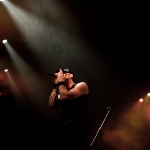
Soil |
LATEST GALLERY IMAGES

The News Today, Oh Boy 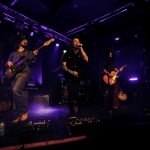
The Commoners |
|
|


